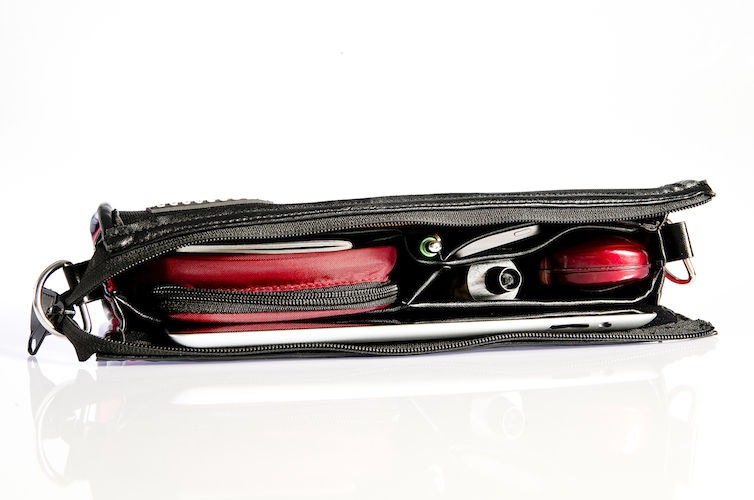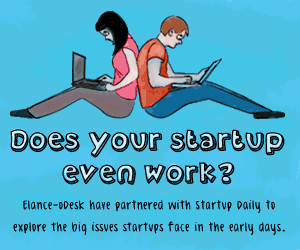
↧
Guy Ryan is inspiring young New Zealanders to create socially conscious startups
↧
Sydney startup ConX wants tradies to stop relying on word of mouth to find work

↧
↧
The mergers and acquisitions round up

↧
YouChews will not be going to China with other muru-D startups; its focus is firmly on the Australian market

Startup Daily has formally partnered with Muru-D over the next 12 months to bring you the stories of its startups, mentors and investors.
↧
Spotify’s Design Lead on Why Side Projects Should Be Stupid

↧
↧
Growing from a startup to a large company. Where startups go wrong in the process.

↧
The Top 50 Women Entrepreneurs Under 40 List of 2015

↧
Deckee is essentially TripAdvisor for boating

↧
Here are the 15 most well-funded startups in Southeast Asia

↧
↧
Perth’s Spacecubed partners with Gurney Branding to help startups get their message right

↧
Snapchat co-founder Evan Spiegel will be speaking at an event for University of Sydney

 Evan Spiegel meets with the Saudi Prince | Source: Kingdom.com[/caption]
Prince Alwaleed is a veteran investor and has stakes in other technology companies such as Twitter, Apple, AOL, and the China based JD.com. These conversations also come at an opportune time for the Prince, as he recently sold his stake in Rupert Murdoch's News Corp and is rumoured to be looking at a new media entity to invest some of his billions of dollars into.
Snapchat now has more than 100 million monthly users and as a company has grown rapidly outside of the 'messaging' space that it was once known for. Additional features like 'Snapchat Stories' and 'Discover' have been widely embraced on the platform and are a growing source of revenue for the business. To give you an example of the power that in particular 'Discover' (a feature that allows media partners to stream video clips on the platform) has, a recent campaign ran by The Food Network resulted in over 10 million unique visitors to the website in less than 2 weeks.
There is no word yet on whether Spiegel is in Australia for reasons other than this talk at the University of Sydney.
Evan Spiegel meets with the Saudi Prince | Source: Kingdom.com[/caption]
Prince Alwaleed is a veteran investor and has stakes in other technology companies such as Twitter, Apple, AOL, and the China based JD.com. These conversations also come at an opportune time for the Prince, as he recently sold his stake in Rupert Murdoch's News Corp and is rumoured to be looking at a new media entity to invest some of his billions of dollars into.
Snapchat now has more than 100 million monthly users and as a company has grown rapidly outside of the 'messaging' space that it was once known for. Additional features like 'Snapchat Stories' and 'Discover' have been widely embraced on the platform and are a growing source of revenue for the business. To give you an example of the power that in particular 'Discover' (a feature that allows media partners to stream video clips on the platform) has, a recent campaign ran by The Food Network resulted in over 10 million unique visitors to the website in less than 2 weeks.
There is no word yet on whether Spiegel is in Australia for reasons other than this talk at the University of Sydney.
↧
Stashboard is a cloud storage platform for creatives

↧
Freelancer completes its 14th acquisition; buys assets of Israeli startup Donanza

 The updated announcement on the Donanza website.[/caption]
The funds for the purchase will come from existing cash reserves at Freelancer. Cooper has told Startup Daily that the integration of the technology into the platform has already begun. Even though Freelancer is a stand alone platform, the type of technology that Donanza had as an aggregator is a powerful new tool for the company.
Essentially it is not too dissimilar to the way in which job site Indeed works, which is one of the fastest growing companies in the world right now. It will be interesting to see how Matt Barrie, CEO of Freelancer, and his team will utilise it.
The updated announcement on the Donanza website.[/caption]
The funds for the purchase will come from existing cash reserves at Freelancer. Cooper has told Startup Daily that the integration of the technology into the platform has already begun. Even though Freelancer is a stand alone platform, the type of technology that Donanza had as an aggregator is a powerful new tool for the company.
Essentially it is not too dissimilar to the way in which job site Indeed works, which is one of the fastest growing companies in the world right now. It will be interesting to see how Matt Barrie, CEO of Freelancer, and his team will utilise it.
↧
↧
Airpocket wants to be more than a product; it aims to be a customisable technology play

 The Airpocket | Image Supplied[/caption]
Smith, who works in the recruitment industry, set about trying to turn her vision of this product into a reality. She contacted a woman on Etsy that also happened to be in Canberra that had made custom bean bags for her daughter's birthday and asked if she could help turn sketches she had drawn of the product into a physical product. At that point in time, the product material used was felt. The first few iterations were completed by this woman until her Beanbag business on Etsy began to take off and she could no longer dedicated time to the product that is now known as Airpocket.
To date, Smith has taken on various mentors to help her grow the idea into something that is commercially viable. Mentors like Mick Spencer who is the founder of Canberra based OnTheGo has helped out with introductions to source agents and others have put Smith in contact with industrial designers. This has allowed her to refine and tweak the product, and source a place for manufacturing in China.
Right now the material being used for the product in neoprene. What makes this interesting is, unlike felt which was originally used, neoprene is completely customisable. This means it will be easy to have the Airpocket product in multiple colours. There is also the ability for neoprene sublimation (custom printing) where if you wanted to have a picture of your cat on the product you could do so.
This is where the technology opportunity exists for Smith, and where she would like to see the company get to over the coming years.
"Customisation, where people can design their own Airpocket is exactly what I would love to be able to do," says Smith. "It's another of the reasons that I decided to go with neoprene because you can print anything on it".
Customisation is most definitely on trend. Australian startups like Shoes of Prey, Style Rocks and Mon Purse are currently doing well in the market. It is worth noting that all of these startups have multiple SKUs, whereas Airpocket, at least for now, is just a singular product.
This does not mean however that it will struggle to reach scalability - in fact the opposite could be true. Melbourne based company Keep Cup is also a single product company and in addition to other avenues to market, it allow users to customise their product. In its first 18 months, Keep Cup had revenues of over $3 million.
In the same way that Keep Cup has gone to market using multiple strategies like online customisation, physical stockists and corporate partnerships, Smith believes that Airpocket also has the ability to do that, and is already having preliminary conversations about licensing.
However, the first phase of this is determining product-market fit, which is what the Kickstarter campaign has already proved. Only a few days in and Airpocket has more than doubled its fundraising goal and in the process has sold about 600 units - this has given Smith the confidence to move forward and begin having serious conversations with manufacturers and shipping companies about setting up infrastructure for the future.
In terms of challenges that may be waiting ahead for Smith, copycat product presents a very real threat. Although the company name and product as well as particular features of the product like the pocket layout have been trademarked, the product itself is not patentable. This means that building a brand name and following like the Keep Cups of the world is of paramount importance for Smith, so new customers proactively seek out the Airpocket brand when looking for a product of this nature.
The Airpocket | Image Supplied[/caption]
Smith, who works in the recruitment industry, set about trying to turn her vision of this product into a reality. She contacted a woman on Etsy that also happened to be in Canberra that had made custom bean bags for her daughter's birthday and asked if she could help turn sketches she had drawn of the product into a physical product. At that point in time, the product material used was felt. The first few iterations were completed by this woman until her Beanbag business on Etsy began to take off and she could no longer dedicated time to the product that is now known as Airpocket.
To date, Smith has taken on various mentors to help her grow the idea into something that is commercially viable. Mentors like Mick Spencer who is the founder of Canberra based OnTheGo has helped out with introductions to source agents and others have put Smith in contact with industrial designers. This has allowed her to refine and tweak the product, and source a place for manufacturing in China.
Right now the material being used for the product in neoprene. What makes this interesting is, unlike felt which was originally used, neoprene is completely customisable. This means it will be easy to have the Airpocket product in multiple colours. There is also the ability for neoprene sublimation (custom printing) where if you wanted to have a picture of your cat on the product you could do so.
This is where the technology opportunity exists for Smith, and where she would like to see the company get to over the coming years.
"Customisation, where people can design their own Airpocket is exactly what I would love to be able to do," says Smith. "It's another of the reasons that I decided to go with neoprene because you can print anything on it".
Customisation is most definitely on trend. Australian startups like Shoes of Prey, Style Rocks and Mon Purse are currently doing well in the market. It is worth noting that all of these startups have multiple SKUs, whereas Airpocket, at least for now, is just a singular product.
This does not mean however that it will struggle to reach scalability - in fact the opposite could be true. Melbourne based company Keep Cup is also a single product company and in addition to other avenues to market, it allow users to customise their product. In its first 18 months, Keep Cup had revenues of over $3 million.
In the same way that Keep Cup has gone to market using multiple strategies like online customisation, physical stockists and corporate partnerships, Smith believes that Airpocket also has the ability to do that, and is already having preliminary conversations about licensing.
However, the first phase of this is determining product-market fit, which is what the Kickstarter campaign has already proved. Only a few days in and Airpocket has more than doubled its fundraising goal and in the process has sold about 600 units - this has given Smith the confidence to move forward and begin having serious conversations with manufacturers and shipping companies about setting up infrastructure for the future.
In terms of challenges that may be waiting ahead for Smith, copycat product presents a very real threat. Although the company name and product as well as particular features of the product like the pocket layout have been trademarked, the product itself is not patentable. This means that building a brand name and following like the Keep Cups of the world is of paramount importance for Smith, so new customers proactively seek out the Airpocket brand when looking for a product of this nature.
↧
Health Writer Hub aims to help freelancers develop expertise in writing about medicine

↧
The mergers and acquisitions round up

Featured Image: Jack Dorsey, Founder, Twitter: Source: Reuters.
↧
Bugcrowd has raised a $6 million Series A round

- 11.3x revenue growth rate year over year from 2013 to 2014
- Bugcrowd has seen swift and strong customer acquisition and currently has run over 160 programs to date.
- Some well known customers include: Western Union, Pinterest, Barracuda Networks, Silent Circle (Blackphone), Indeed and more.
- Significant growth of security researcher “Crowd” from 3,000 in September 2013 to more than 15,000 to date.
- Key additions to the Bugcrowd team include security industry veterans such as Kymberlee Price and Jeremiah Grossman who will be joining us as an advisor.
↧
↧
Uber vs goCatch: We Put Taxi-Tech to the Test

↧
‘Australian businesses are drowning in data’ and SurveyMonkey’s new Managing Director wants to help them make sense of it

Featured image: SurveyMonkey Team | Source: Supplied
↧
Moneyball lets sports fans put their coaching skills to the test against friends for cash

↧
